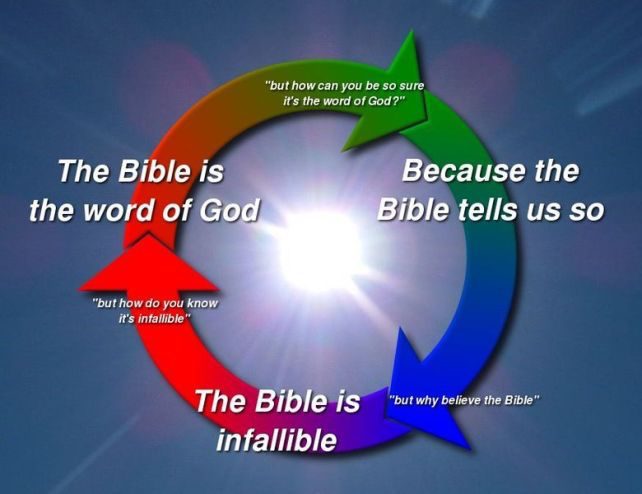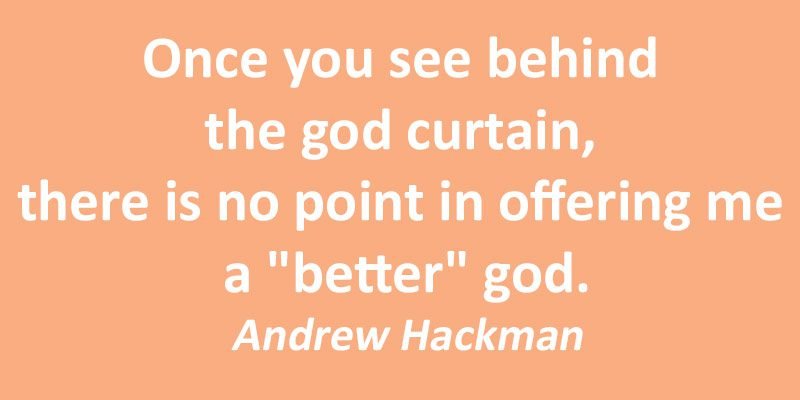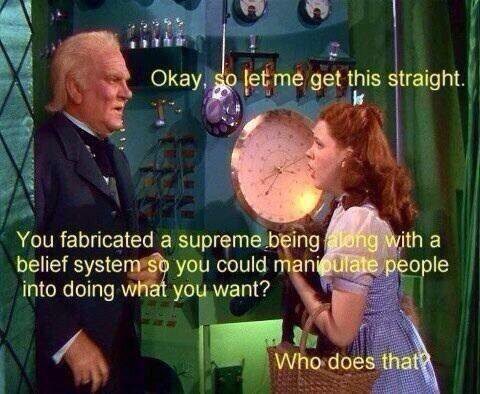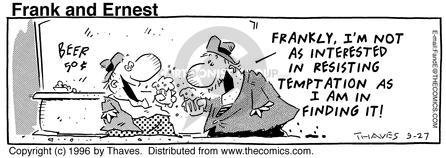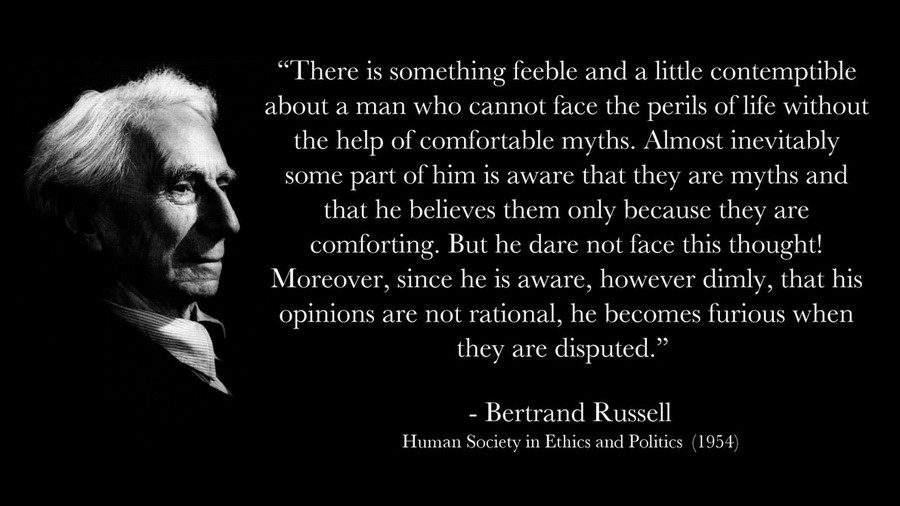
Recently, an Evangelical man by the name of Mike left the following comment on the post titled The Sounds of Fundamentalism: Evangelical Bill Wiese Preys on Dying Atheist:
JESUS offers the only way to Heaven. It is not difficult but some are so arrogant or get off on their unbelief. The problem with that is this life ends in a blip. Life is just a vapor. Choose Heaven…over hell. Are these people with these incredible experiences all making it up? All of them? Be serious.
We shall all die and be totally forgotten…except by GOD thankfully.
Mike asks, “Are these people with these incredible [conversion] experiences all making it up?” Well, certainly some of them are making it up. Evangelical churches are filled with people who are just going through the motions; people who don’t really believe. I have no doubt that on Sundays, Evangelical churches even have atheists in their midst; unbelievers who go through the motions for the sake of the marriages or families. Some churches even have atheist pastors — men who don’t believe, yet preach the “gospel” Sunday after Sunday. (Check out the Clergy Project for more information about help for unbelieving clergy.)
Now, Mike is likely a True Christian®. He probably knows countless other people who are members of the True Christian® Club — Established 33 A.D. by Jesus Christ. Mike incredulously asks me to be serious. Do I really think that people with incredible conversion experiences are all making it up? No, I don’t think True Christians® are lying when they testify to what Jesus has done in their lives. I almost always take Christian professions of faith at face value. That said, since the Evangelical God has never been seen, and neither has the Holy Spirit, is it not fair for skeptics and atheists to question whether such beings exist and whether said conversion experiences can, in fact, be proved? The very nature of faith requires believing without seeing. (Hebrews 11) While Jesus, in fact, walked the streets of Galilee almost 2,000 years ago, no one has seen him since the first century. There’s no credible evidence for claims that Jesus physically resurrected and ascended to Heaven. Jesus, supposedly, now sits at the right hand of the Father, awaiting the day and time when Gabriel will blow his trumpet, signifying the second coming of Jesus, the King of kings and Lord of lords, to earth. Millions of Evangelicals gather on Sundays to praise and worship the resurrected Christ and the wonders of his saving grace. Evangelical worship is rooted not in fact, but faith; again, believing what cannot be seen. No one has ever seen God, the Holy Spirit, Jesus, angels, Satan, or demons, yet Evangelicals believe these entities exist and are intimately involved in their day-to-day lives. Surely, the fact that they “believe” these things to be true makes them so, right? No! No! No!
Is the fact millions of people believe something to be true, make it so? Of course not. Humans can and do believe things that are patently false or are rooted in myth. Just because millions and millions of Evangelicals believe Jesus is the virgin-born, miracle-working, crucified, and resurrected Son of God, doesn’t mean their beliefs are, in fact, true. When Evangelicals are pressed for evidence for their theological claims, they ultimately appeal to the Bible and faith. Either you believe or you don’t. Evangelicals, for a variety of reasons, suspend rationality and choose, instead, to put their faith and trust in the Christian narrative. Atheists and other unbelievers refuse to set reason aside and faith-it. Granted, Evangelicals have all sorts of apologetical arguments they use to refute atheist claims, but the differences between the two parties really come down to one thing — faith. Evangelicals have it and atheists don’t.
Mike would have us believe that the mere fact that countless Evangelicals believe in Jesus and have had conversion experiences, alone, is “proof” of their truthiness. Of course, this notion is easily disproven. Evangelism is, by nature, exclusionary. Only those who have repented of their sins and put their faith and trust in Jesus Christ are blood-washed members of the True Christian® Club. All other religions are false. Wait a minute, if the sheer number of adherents determines whether theological claims are true, wouldn’t that mean that Islam, with 1.8 billion believers, is true? Couldn’t the same be said for Mormons? Mormonism is quite Evangelical in theology and practice. Almost 15 million people worldwide worship the Mormon version of Jesus Christ. Surely, this means that Mormonism is true too, right?
Let’s go back to the first century for a moment. The Romans ruled most of the known world. God’s chosen people, the Jews, were under the thumb of Rome. A ragtag group of misfits walked the streets of Jerusalem and Galilee, claiming that their leader, Jesus, was some sort of miracle worker — a man sent from God. Yet, when all the Christians gathered in an upper room to await the Day of Pentecost, they numbered 120 people (Acts 1). Think of all the miracles Jesus purportedly worked. Think of the things that happened when he died: the veil in the Jewish Temple was rent in twain, graves opened up and dead people came back to life and walked the streets of Jerusalem, and the sun was darkened. Think of all the miracles Jesus worked after his three-day weekend in the grave. (Please see I Wish Christians Would be Honest About Jesus’ Three Day Weekend.) Yet, come the events recorded in Acts 1, the disciples of Jesus numbered 120. Talk about failure. Why, President Trump would be tweeting about what a failure Jesus and the Apostles were to him! Using Mike’s logic — just being serious here — it would seem that the gods of Rome were the true Gods. If crowd size determines whether theological claims are true, it’s fair to say that Christianity is false.
Now, I know that Evangelicals have all sorts of apologetical arguments they use to show that Evangelical Christianity is true, and all other religions (and non-religions) are false. Mormon believe this or that, and this proves Mormonism is false, Evangelicals say. Similar arguments are made against Islam, Buddhism, Roman Catholicism, Hinduism, Pastafarianism, Shintoism, Santeria, and cargo religions. Bruce, all these other religions are false! Why? Why is Christianity true and all other religions false? Look at their crazy beliefs, Bruce! Only Christianity is true! Really? Try taking a look at Evangelical Christianity from the outside. Isn’t the Evangelical narrative just as crazy as that of other religions? I have already disproved the notion that the size of the sect proves its truthiness. Lots of sects have millions and billions of adherents. If penis size alone determines which appendage is the one true cock, what can be said about Trump-sized groups such as Evangelicals — whose numbers are quite small when compared to Roman Catholicism, Hinduism, and Islam?
No, the fact that millions and millions of people profess faith in the Evangelical Jesus proves nothing. Just because individual Christians testify to the miracle-working power of their God, it proves nothing. Sure, religion can and does effect change in the lives of people, but beliefs need not be true for them to be transformative. Humans believe all sorts of things that are false. In science, there is what is called the placebo effect: a beneficial effect produced by a placebo drug or treatment, which cannot be attributed to the properties of the placebo itself, and must therefore be due to the patient’s belief in that treatment. Most humans want meaning, purpose, and happiness in their lives. Is it not possible the religion in general and specifically Evangelicalism produces a placebo effect? Evangelicals “believe” and it works. Evangelicalism doesn’t work for atheists. Why is that? Atheists don’t believe; they don’t have the requisite faith necessary for one to become a Christian.
I hope that this post puts to rest the argument that truth is determined by crowd size. It’s not, and if the Mikes of the world want to prove that Evangelicalism is true, it is time for them to prove it; not with lame presuppositions or Bible verses, but real evidence. Of course, no such evidence is forthcoming, and for this reason, and others, the number of unbelievers continues to grow.
Bruce Gerencser, 66, lives in rural Northwest Ohio with his wife of 45 years. He and his wife have six grown children and thirteen grandchildren. Bruce pastored Evangelical churches for twenty-five years in Ohio, Texas, and Michigan. Bruce left the ministry in 2005, and in 2008 he left Christianity. Bruce is now a humanist and an atheist.
Connect with me on social media:
Your comments are welcome and appreciated. All first-time comments are moderated. Please read the commenting rules before commenting.
You can email Bruce via the Contact Form.


